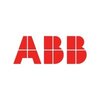

Centre for Development of Advanced Computing




20+ Centre for Development of Advanced Computing Project Engineer Interview Questions and Answers
Q1. MySQL database Array vs Array list vs Linked list What is Binary tree, Complete binary tree? Coding Questions: Preorder , Inorder, Postorder traversal of Binary tree (Recursively) Pattern Printing Coding questi...
read moreUnderstanding data structures and algorithms commonly used in MySQL databases.
Array: a data structure that stores a collection of elements in a contiguous memory location.
ArrayList: a resizable array implementation that dynamically adjusts its size as elements are added or removed.
LinkedList: a data structure where each element is connected to the next element via pointers.
Binary Tree: a tree data structure where each node has at most two children.
Complete Binary Tree: a bina...read more

Q2. Explain oops concepts with real world example
OOPs concepts are used to model real-world objects and their interactions.
Encapsulation: Hiding internal details of an object. Example: A car's engine is encapsulated and can only be accessed through the car's interface.
Inheritance: Creating new classes from existing ones. Example: A sports car class can inherit properties from a car class.
Polymorphism: Objects can take on many forms. Example: A vehicle class can have different methods for different types of vehicles.
Abstract...read more

Q3. Explain your cdac project in detail
Developed a real-time traffic monitoring system using image processing techniques
Used OpenCV library for image processing
Implemented vehicle detection and tracking algorithm
Developed a web-based dashboard for real-time monitoring
Used Raspberry Pi for hardware implementation
Achieved an accuracy of 90% in vehicle detection

Q4. How convolution layer work, what is padding, what is recurrent neural network, what is gradient dissent algorithm, etc.
Convolution layers are used in neural networks for feature extraction, padding is adding zeros to input data, RNNs are used for sequential data, gradient descent is an optimization algorithm.
Convolution layers in neural networks extract features by applying filters to input data.
Padding is adding zeros around the input data to preserve spatial dimensions.
Recurrent Neural Networks (RNNs) are designed to work with sequential data, where the output depends on previous inputs.
Gra...read more

Q5. Write code for jdbc db connectivity
Code for JDBC DB connectivity
Load the JDBC driver class
Create a connection object using DriverManager.getConnection()
Create a statement object using connection.createStatement()
Execute the query using statement.executeQuery()
Process the result set
Close the result set, statement, and connection

Q6. Explain exception handling, Multithreading, etc
Exception handling is a way to handle errors in code. Multithreading allows multiple threads to run concurrently.
Exception handling is used to catch and handle errors that occur during program execution.
It helps prevent the program from crashing and allows for graceful error handling.
Multithreading allows for multiple threads to run concurrently, improving program performance.
It can be used for tasks such as background processing, user interface updates, and network communica...read more

Q7. How to turn an LED On? Explain with design Difference between BJT and FETs Explain Project
To turn an LED on, apply a voltage higher than the forward voltage across the LED. BJT and FETs differ in their operation and characteristics.
To turn an LED on, connect it in the correct polarity with a voltage source higher than its forward voltage.
BJTs are current-controlled devices, while FETs are voltage-controlled.
BJTs have higher gain and lower input impedance compared to FETs.
Example: To turn on a red LED with a forward voltage of 2V, connect it to a 3V battery with th...read more

Q8. What framework you have used in your project.
I have used the Agile framework in my project.
Implemented Scrum methodology for project management
Used Kanban boards for task tracking
Held daily stand-up meetings for team communication


Q9. explain about how to secure database
Securing a database involves implementing access controls, encryption, regular backups, and monitoring for suspicious activity.
Implement strong access controls to restrict unauthorized access to the database
Use encryption to protect sensitive data both at rest and in transit
Regularly backup the database to prevent data loss in case of a security breach
Monitor the database for any suspicious activity or unauthorized access attempts
Update database software and patches regularly...read more

Q10. STA numerical to calculate setup and hold time
Setup and hold time can be calculated using the formula: Setup time = (Clock period - Required time) and Hold time = (Required time)
Setup time is the amount of time data must be stable before the clock edge
Hold time is the amount of time data must be stable after the clock edge
Setup time = Clock period - Required time
Hold time = Required time

Q11. How to debug design on FPGA
Debugging design on FPGA involves using simulation tools, logic analyzers, and oscilloscopes.
Use simulation tools to verify functionality and identify issues
Utilize logic analyzers to analyze signals and troubleshoot problems
Use oscilloscopes to visualize waveforms and timing issues
Check for proper clocking and signal integrity
Verify the design against the specifications

Q12. what is encapsulation
Encapsulation is the concept of bundling data and methods that operate on the data into a single unit.
Encapsulation helps in hiding the internal state of an object and restricting access to it.
It allows for better control over the data by preventing outside interference.
Encapsulation is a fundamental principle of object-oriented programming.
Example: In a class representing a car, the variables like speed and fuel level, along with methods like accelerate and refuel, would be ...read more

Q13. Diff between shallow copy and deep copy
Shallow copy only copies the references of objects, while deep copy creates new copies of objects.
Shallow copy creates a new object but does not duplicate the nested objects within it.
Deep copy creates a new object and also duplicates all the nested objects within it.
Example: Shallow copy - copying a list of objects only copies the references to those objects. Deep copy - creates new copies of all objects in the list.

Q14. what is abstraction
Abstraction is the process of removing unnecessary details to focus on the essential characteristics of an object or concept.
Abstraction allows us to work with complex systems by simplifying them into manageable components.
It helps in reducing complexity and increasing efficiency in problem-solving.
For example, in software engineering, abstraction is used to create classes and objects that represent real-world entities while hiding the implementation details.

Q15. what is inheritance
Inheritance is a concept in object-oriented programming where a class can inherit attributes and methods from another class.
Allows for code reusability and promotes a hierarchical structure
Derived class can access the properties and methods of the base class
Types of inheritance include single, multiple, multilevel, and hierarchical
Example: Class Car can inherit from class Vehicle, inheriting attributes like speed and methods like accelerate

Q16. what is hibernet
Hibernate is an open-source object-relational mapping (ORM) framework for Java applications.
Hibernate simplifies the development of database-driven applications by mapping Java objects to database tables.
It provides a query language called HQL (Hibernate Query Language) for querying databases using object-oriented syntax.
Hibernate supports automatic generation of primary key values, caching, and transaction management.
Example: Hibernate can be used to map a Java class represe...read more

Q17. Siem solutions for management
Siem solutions are security information and event management tools used for managing security incidents and events in real-time.
SIEM solutions collect, analyze, and report on security data from various sources.
They help organizations detect and respond to security incidents more effectively.
SIEM solutions can provide real-time monitoring, threat intelligence, and compliance reporting.
Examples of SIEM solutions include Splunk, IBM QRadar, and ArcSight.

Q18. Configuration of L2-L3 device
Configuration of L2-L3 device involves setting up VLANs, IP addresses, routing protocols, and security features.
Configure VLANs to segment network traffic
Assign IP addresses to interfaces for communication
Implement routing protocols like OSPF or BGP for network connectivity
Enable security features such as access control lists (ACLs) and port security
Test and verify the configuration to ensure proper functionality

Q19. Procedure stored procedure
A stored procedure is a set of SQL statements that can be saved and reused in a database management system.
Stored procedures help improve performance by reducing network traffic and improving security.
They can be used to encapsulate business logic for reuse.
Stored procedures can accept input parameters and return output parameters or result sets.
Examples: CREATE PROCEDURE, EXECUTE PROCEDURE.

Q20. explain spring security
Spring Security is a powerful and customizable authentication and access control framework for Java applications.
Provides comprehensive security services for Java EE-based enterprise software applications
Supports authentication, authorization, and protection against common security vulnerabilities
Integrates with Spring Framework for seamless configuration and usage
Allows for custom security configurations and extensions
Example: Configuring role-based access control using anno...read more

Q21. Sql join conditions
SQL join conditions are used to combine rows from two or more tables based on a related column between them.
Use JOIN keyword to combine rows from two or more tables based on a related column
Specify the join condition using ON keyword followed by the column names
Types of joins include INNER JOIN, LEFT JOIN, RIGHT JOIN, and FULL JOIN

Q22. Explain OOPS concept
OOPS concept stands for Object-Oriented Programming System. It is a programming paradigm based on the concept of objects.
OOPS focuses on creating objects that contain data in the form of attributes and code in the form of methods.
Encapsulation, Inheritance, Polymorphism, and Abstraction are the four main principles of OOPS.
Encapsulation refers to the bundling of data and methods that operate on the data into a single unit.
Inheritance allows a class to inherit properties and b...read more

Q23. describe ur work
I work as a Project Engineer overseeing the planning, design, and execution of engineering projects.
Coordinate with team members to develop project plans and timelines
Manage project budgets and resources
Ensure projects are completed on time and within budget
Collaborate with clients to understand their needs and provide solutions
Troubleshoot any issues that arise during project execution





Top HR Questions asked in Centre for Development of Advanced Computing Project Engineer
Interview Process at Centre for Development of Advanced Computing Project Engineer

Top Project Engineer Interview Questions from Similar Companies








Reviews
Interviews
Salaries
Users/Month












